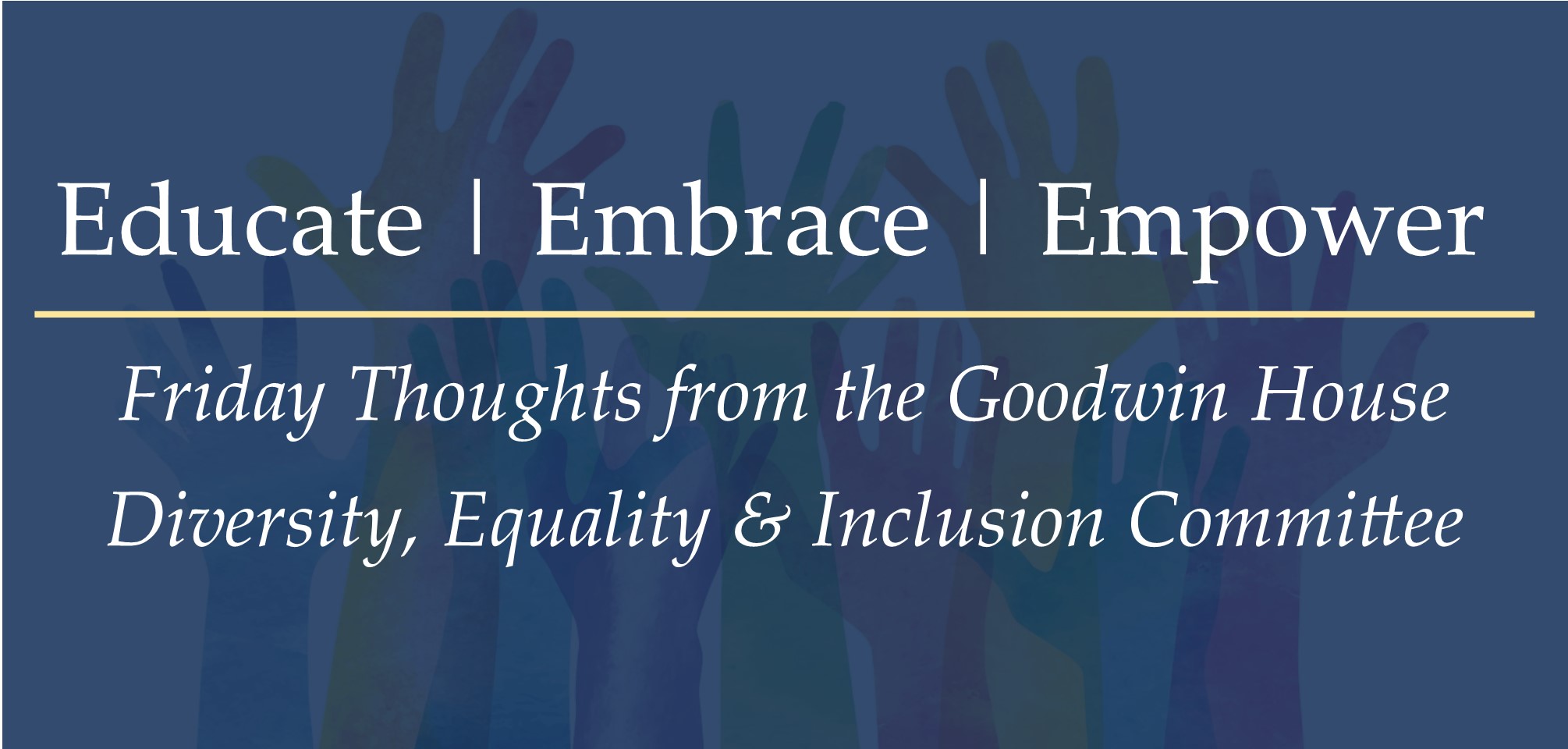
Diversity Equity Inclusion & Belonging - November 5, 2021
by Rev. J. Bruce Stewart, GHA Director of Chaplaincy
How much pain can you tolerate? How many days of the same thing over and over can you tolerate? How many robocalls can you tolerate? How long can you tolerate someone else’s annoying mannerisms or viewpoints?
Built into those questions is the idea that toleration is like a lit fuse with a length that changes according to an individual’s capacity for tolerance. It is as though being tolerant is a virtue exhibited by someone who has the moral high ground and who would be considered justified when tolerance turns into judgement, disdain or even violence. When the fuse runs out, there is an explosion.
In my own life, if I can somehow avoid the desire for payback or revenge, it would seem that I am being tolerant. In reality, it turns out I am more likely becoming numb, distant or indifferent to whatever situation, experience or person is requiring my tolerance. Tolerance then seems more like a diminishment and a punishment of myself. As a result, the areas of my life and my world where I find comfort and enjoyment become smaller and smaller.
In 1995, the United Nations Educational, Scientific and Cultural Organization (UNESCO) established the International Day for Tolerance to generate public awareness of the dangers of intolerance. It has been observed every year since on November 16, but what do they mean by tolerance? UNESCO’s 1995 Declaration of Principles on Tolerance offers us this definition to consider: “Tolerance is respect, acceptance and appreciation of the rich diversity of our world’s cultures, our forms of expression and ways of being human.”
Instead of a world of toleration where it seems my glass is half empty, true tolerance can be a joyful celebration of a glass overflowing with diversity and variety. Instead of sitting back and trying not to be annoyed, we can find ourselves taking positive steps to recognize in our lives, our workplaces and our world, the opportunities to learn from each other. Instead of sticking to my own best (meaning “correct”) way for everything, I can be open to new ideas, customs, methods and beliefs that can not only coexist but actually help create a world better than what we have so far. I find it both inspiring and challenging that there could be many “ways of being human”.
UNESCO’s website describes the Day for Tolerance as recognizing “universal human rights and fundamental freedoms of others. People are naturally diverse; only tolerance can ensure the survival of mixed communities in every region of the globe.”
In the end, tolerance is really not optional. It is necessary for our global survival. It will require not only feelings of empathy for those whose ways differ from mine, but also an effort to create systems that make tolerance the accepted norm. I am grateful for those who are working toward this goal. They are helping to create a world with room for everyone. UNESCO established a prize to recognize such folks who have been doing this in a variety of ways:
“The UNESCO-Madanjeet Singh Prize for the Promotion of Tolerance and Non-Violence rewards significant activities in the scientific, artistic, cultural or communication fields aimed at the promotion of a spirit of tolerance and non-violence. The creation of the Prize has been inspired by the ideals of UNESCO’s Constitution that proclaims that ‘peace, if it is not to fail, must be founded on the intellectual and moral solidarity of mankind’. The prize is awarded every two years on the International Day for Tolerance, 16 November. The Prize may be awarded to institutions, organizations or persons, who have contributed in a particularly meritorious and effective manner to tolerance and non-violence.”
To reach a world of tolerance, it will certainly take more than one day a year. Yet if we make an effort one day at a time, we can continue to get closer to that goal. I am grateful for your tolerance.
“…tolerance, far from being a passive attitude tantamount to complacency or indifference, is a dynamic, daily effort, made both individually and collectively.”
— Audrey Azoulay, Director-General of UNESCO
_____________________________________________________
About the Diversity, Equality and Inclusion (DEI) Committee: We are a group of staff and residents who together serve a mission to educate, embrace and empower a workplace of diversity, equality and inclusion. Our vision is to seek open and honest communication and collaboration that will inform and celebrate the cultural, ethnic and sexual orientation of all members of our staff without bias.
Questions or comments? Please contact us dei@goodwinliving.org.
